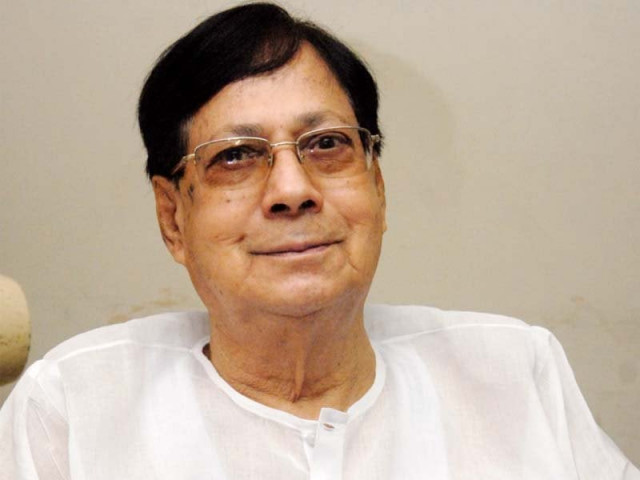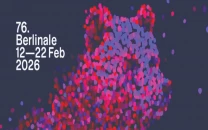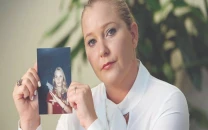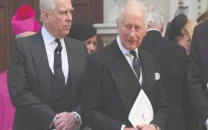Our artists have drowned in waters of oblivion: Kamal Ahmed Rizvi
Writer of ‘Alif Noon’ fame on society’s wavering sensibility towards performing arts and literature.

A man of letters but few words, he seldom goes out and has resigned to not comment on most things. PHOTOS: ASHRAF MEMON/EXPRESS
Kamal Ahmed Rizvi is the man behind one of the most celebrated sitcoms in the country’s history, Alif Noon. His show was so popular that when he once took his car to a workshop, the mechanic refused to repair it, saying he had to go watch an episode of the show that was being aired. If Rizvi may say so himself, “Interests and trends change with time, but those who grew up watching the series still remember it like [they watched it] yesterday.”
One of the founding fathers of theatre in Pakistan, Rizvi has been long been a household name, making it close to impossible to encapsulate his career trajectory in one sitting. A writer, director, translator, editor and even a painter, the artist has done it all. But today, the octogenarian has seemingly thrown his hands up. He still smiles a lot and is hopeful for the future but refuses to let go of his past.
He has boycotted television and doesn’t read the newspaper because “it has nothing encouraging that can be read.” Political turmoil and the society’s collective sensibility towards performing arts and literature have broken his heart, although Imran Khan gives him hope. His bond with faith has also strengthened over time. A man of letters but few words, he seldom goes out and has resigned to not comment on most things. “I have expressed my views over this several times in the past,” was his abrupt response to most questions he was asked, echoing his displeasure over the status quo. His house and way of life speak volumes of his austerity and simplicity.

Born in 1930 in Bihar’s ancient city of Gaya, Rizvi opted for moving to Pakistan following Partition and settled in Karachi when he was 19. Like most other thinkers of his age, Rizvi was influenced by communism. Running out of funds he brought with himself, he approached the Communist Party of Pakistan, which pivoted him towards the Progressive Writers Association. It was here that began his fascinating journey. Saddar’s Cafe George soon became his Pak Tea House, where he used to spend countless hours in the company of renowned writers, such as Ibrahim Jalees and Shaukat Siddiqui.
He always found solace in books and used to spend most of his time reading Western classical drama. He holds great regard for poetry and has extensively read both classical and contemporary works. Among Rizvi’s classics are Mr Shaitan, Adhi Baat and Sahib Bibi Ghulam. When asked about playwriting, Rizvi said, “Money is not a motivation for me. I write when I’m inspired. It’s impossible to create magic in the absence of inspiration.” He also edited popular digests, such as Tehzeeb, Aina and Shama.
Rizvi tried his luck with cinema but soon retracted and remained associated with radio for a brief period. He then visited Lahore, where he met the man whose writings inspired him the most — Saadat Hasan Manto. “I have read literature from every part of the world. If I’m asked to choose one fiction writer who changed me completely, it’ll be none other than him [Manto].” Rizvi laments his idol’s treatment at the hands of society and said, “Our collective ignorance forced him live a life of misery.”
He got the chance for his first acting stint when Zia Mohyeddin staged Shakespeare’s Julius Caesar for BBC Urdu. This paved the way for him to take up numerous theatre ventures and subsequently, television. Here, he met the Hardy to his Laurel, Rafi Khawar. The stand-up duo ruled PTV for years. Khawar’s suicide broke Rizvi’s back and given the sensitivity of the issue, he chose not to discuss it. During his time at PTV, numerous budding actors carved their own niches under his guidance. “Had we not trained them, PTV would’ve never grown into what it did,” he maintained.
Rizvi has no qualms the government will ever do anything substantial for the promotion of arts. “Our society is in dire straits. Who has time for the arts in this day and age?” said Rizvi, who dedicated over six decades to the field. This is the point where his fists tightened and his tone changed dramatically. “Our artists have drowned in waters of oblivion,” he said.
The story was originally published in the ‘Shakhsiyat’ pages of Roznama Express.
Translated By: Ali Raj
Published in The Express Tribune, June 28th, 2015.
Like Life & Style on Facebook, follow @ETLifeandStyle on Twitter for the latest in fashion, gossip and entertainment.



















COMMENTS
Comments are moderated and generally will be posted if they are on-topic and not abusive.
For more information, please see our Comments FAQ